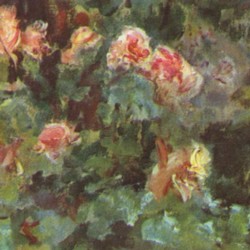- Details

My dearest, I send you this music postcard from the city where I'm spending my holiday.
I always try to pick a song that gives you a clue about the place; it was difficult other years, but this time there was plenty to choose from, because it caught the attention of many writers of the Romanticism (i fact, of many artists of every time). For example, Irish poet Thomas Moore dedicated some poems to the city after visiting it in 1819.
- Details

The aim of serenades is seduction, but it's not unusual that, in Art Song context, they are somehow sad. For example, in a well-known serenade, Schubert's Ständchen, the music of the third, last stanza makes us think (always depending on the interpreters) that there is more distance between him and her than he would wish. Another example of a sad serenade, maybe more obvious, is the one I'm proposing today, Des Abends kann ich nicht schlafen gehn by Johannes Brahms.
- Details

When Das Marienleben was premiered, in June 1923, Paul Hindemith was twenty-seven. He wasn't unknown, either as an interpreter or as a composer, at least among the connoisseurs. Schott had been interested in his music a few years ago, and the publisher and the composer had just reached an agreement that guaranteed Hindemith a monthly allowance. This regularity of income would allow him to leave the concertino place at the Frankfurt Opera, which he had rejoined after the war [...]
- Details

This article will be published on the 1st of September, but I am writing it in the middle of the Schubertíada. They're days of intense work, of enjoying wonderful music, of gathering impressions, of reflecting, of taking notes for future articles, but not of sitting down to write calmly.
- Details

The sapphic strophe was originated at the Ancient Greek, and is named after the poet Sappho. It also was used by Horace and other Roman poets, and eventually its metre was adapted to the different European languages, keeping its original structure. It was easy to illustrate this strophe with an example in the Catalan version of the post, because Spanish literature lesson plans in the high school used to include Romantic poet Gustavo [...]












